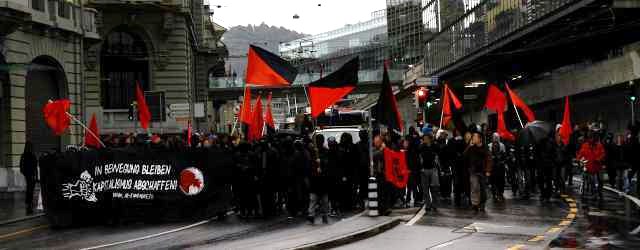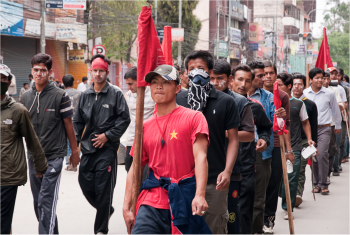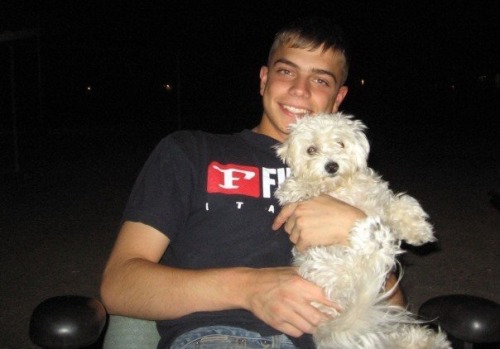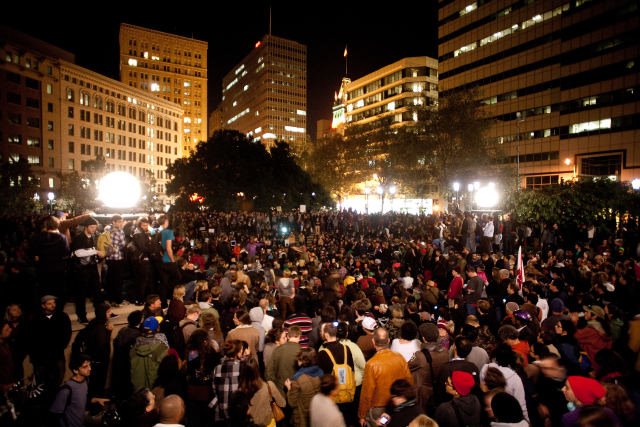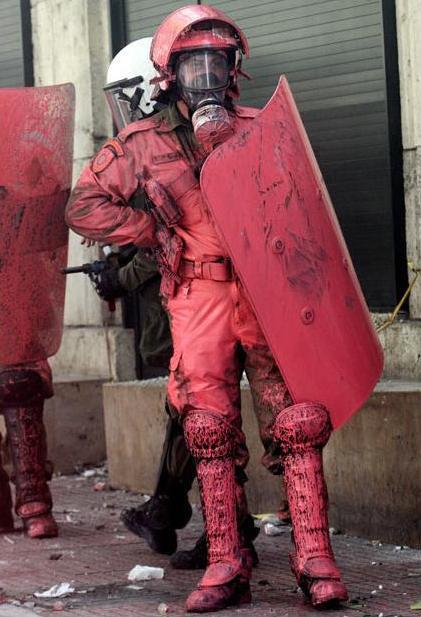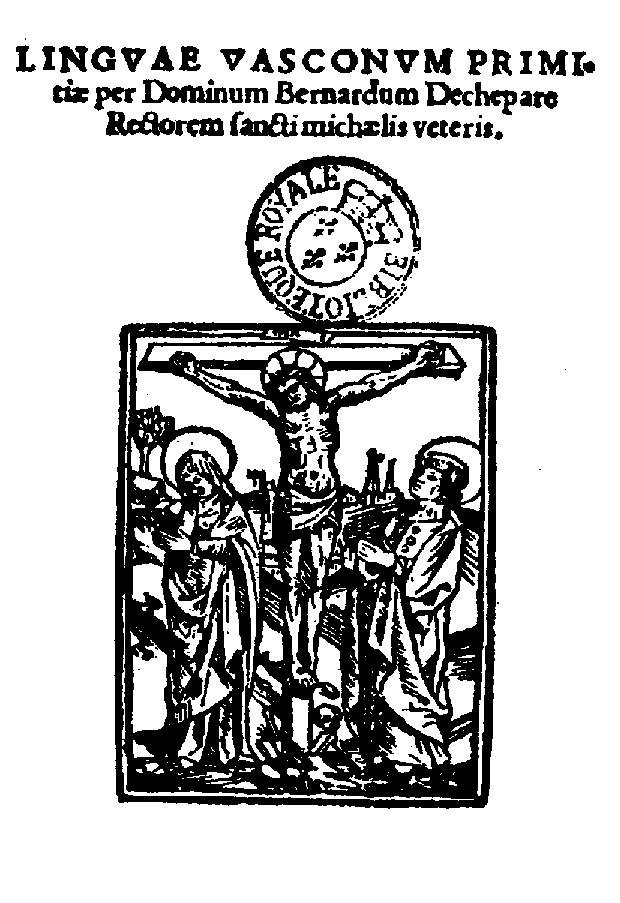I believe that this week again the brave 'Occupy Wall Street' movement gets 'first page'. There are other very important news zones like the non-existent Basque peace process, the chronically dramatic Japanese nuclear crisis, the incipient civil war in Syria, the persistence of the civic uprising in Yemen (more than six months already), the rather disappointing Tunisian elections, etc.
Spotlight: Occupy movement
But the civic stand in the USA (and some other places in Oceania and Europe) obviously gets some primacy, if nothing else because it is a clear symptom of deep discontent in the Western Empire, affected by structural disorder in all aspects beginning with the economy and ending with politics.
As I mentioned on Thursday, violent repression by Oakland police left a demonstrator seriously injured (he seems to be improving but was in coma for some time) and sparked greater anger across the country. It was not the only city where police repression was outstanding against the Occupy movement. As far as I have gathered (non-exhaustive list) it also happened at:
Chicago: dozens arrested (video)
Atlanta: at least 50 citizens were arrested (video)
Nashville: police arrests many as camp declared 'illegal' (video)
Denver: police charged violently with pepper spray and rubber bullets (video), another video.
Denver: police charged violently with pepper spray and rubber bullets (video), another video.
More on the Oakland police aggression by George Washington (self-defined conservative but critical): did the policeman shot him on purpose? (sure, we know he did, otherwise he'd have missed as the guy was standing just in front of the police line... but anyhow), aerial footage of the police shooting, photos, videos and links (some photos recycled here).
 |
| Rubber-coated bullets do this and worse |
Protests not particularly repressed:
NYC: rally against police brutality (video, notice that this was before this weeks ultra-violent showdown); demo against Morgan Chase bank (video).
Detroit: protest against Bank of America (video)
Milwaukee: thousands demonstrated against political corruption (video)
Iowa: citizens reject Wisconsin governor's visit (video)
Austin: solidarity march with Oakland victims of police violence (video)
Detroit: protesting under the rain (video)
Detroit: protesting under the rain (video)
Oakland: citizens return and tear down police fence around camp site (video)
Oakland: vigil in solidarity with protester in coma (video)
California: communities consider cutting ties with big banks blamed for global economic crisis (article at Bloomberg)
Protests against banks (video)
Protests against banks (video)
Other Occupy protests across the World:
Australia is one of the places where this movement has caught, it seems, suffering some serious repression as well:
Occupy Sydney saw 40 arrested, as police charged violently (video), another video with same title.
Occupy Perth asks for solidarity as the Commonwealth meeting takes place there (video=photo-slide)
Some parts of Europe are being more influenced by what happens in the USA than the movements in southern Europe and have only recently began setting up protest camps:
Occupy Germany has its epicenter in Berlin, where the lawn of the Bundestag itself was occupied, also Frankfurt, Cologne, Stuttgart, Munich, Dusseldorf... (video)
Brussels: Occupy Europe movement persists in the outskirts of Brussels in spite of Belgian rigidness (video)
The movement has also arrived to Japan, where there have been some demos reported: Ginza (video).
Also in Canada: Toronto (video),
Also in Canada: Toronto (video),
__________________.__________________
In other news:
Europe
Basque Country
 |
| Erandioko gaztetxea |
High success (70%) in education strike in Navarre. Thousands demonstrate in Pamplona against education cuts. Police charged against high school students ··> Gara[es], Ateak Ireki[es].
In the Western Basque Country also the largest unions call for changes in policies and cries against education cuts ··> Branka[eu].
Spanish Nationalist Mayor of Pamplona, Yolanda Barcina suffers triple cream pie attack at High Speed Train conference in Toulouse ··> SA[es], Mugitu AHT gelditzeko[es] (worth watching the video). Two arrested later.
 |
| Pamplona Mayor Barcina gets not one but three popular prizes! |
Josu Esparza hides out as French courts push ahead his extradition to Spain for ideological and speech 'crimes'··> Ateak Ireki[eu] (incl. video interview).
Euskal Memoria (Basque Memory) reminds that some 475 Basques were killed by Spanish police forces or paramilitary groups in the last decades, 236 of which were civilians, not member of any armed organization. While Spain claims some 825 killed by ETA, this figure actually includes victims of Spanish nationalist and other paramilitary forces. Euskal Memoria however counts more than 1300 mortal victims of the conflict (··> SA[es]).
Sweden: fire at nuclear plant! ··> EneNews.
Greece:
Anarchists expropriated supermarket's food in Patras and distributed it among the people as form of direct action in the class struggle ··> Contra Info.
Communication from Revolutionary Struggle claiming authorship of bombing of the stock exchange in 2009 ··> Act for freedom now (full text in English).
Thessaloniki: free volunteer-manned health care center to open in few days to put up for state abandonment of social services (they accept volunteers and donations) ··> Contra Info.
Military parade blocked in Thessaloniki by protesters (go Thessaloniki, go!) (video).
Italy: thousands demonstrated in Rome against cuts (video).
Military parade blocked in Thessaloniki by protesters (go Thessaloniki, go!) (video).
Italy: thousands demonstrated in Rome against cuts (video).
Scotland: homophobic murder in Glasgow ··> BBC, The Periscope Post.
Switzerland: Anarchists finish their Anti-Capitalist campaign with a demo ··> Contra Info.
Spain: National University of Education at Distance punishes pregnant worker for critical report on Telefónica company ··> Diagonal[es].
West Asia
Armenia: government claims that Metsamor nuclear power plant (considered one of the riskiest on Earth) is designed to withstand much larger earthquakes than recent one ··> Ex-SKF.
Palestine:
Clashes in Gaza Strip after Israel attacks Rafah, mischievously breaking an Egypt-brokered truce ··> Al Jazeera.
Civic protests against Apartheid during olive harvest (from Ilan Against the Wall):
- Beit Umar: Apartheid Army attacks nonviolent protests against the wall
- Bil'in: Israelis and Internationals (including some Basques) joined the Palestinian protests against Zionist land grab and the apartheid wall. Some ancient oaks were burned by the Apartheid Army. The Zionist soldiers picked Ashraf Abu Rahme (just because of being Arab) and arrested him, shooting him in the foot. ··> video.
- Jalud: Settler terror party attacked Palestinian and Israeli supporters while these were harvesting the olives ··> video.
- Jayus: Apartheid Army attacked Palestinians and internationalists attempting to harvest olives.
- Ma'sara: local festival attacked by Apartheid Army.
- Qaddoum: 80 people demonstrated against Apartheid.
- Sheik Jarrah: residents evicted from their homes continue protests all Fridays and ask for anyone willing to join them.

See also: Uruknet.
Syria: conflict tends to civil war as defectors confront the army ··> Al Jazeera.
Yemen: tens of thousands demonstrated against the stubborn regime of Saleh (video).
America
Chile:
Government wastes billions in campaign against students' fight for the right to a public free quality education ··> Disidente del Capitalismo[es].
A small example of police abuse in Chile ··> Disidente del Capitalismo[es]. (video).
Argentina: Junta mass murder ringleader Astiz sentenced to life ··> BBC.
South Asia
Nepal: Maoist Party breaking in two ··> Revolution in South Asia.
In what signals the growing crisis within the main ruling UCPN (Maoist), party secretary C.P Gajurel Tuesday went on to accuse party chairman Pushpa Kamal Dahal and Prime Minister Baburam Bhattarai of being ‘anti-national’ and that the two “have no right to stay in the party”.
India: West Bengal: Maoist guerrilla makes demands to state government: to remove some forces and to release 52 prisoners ··> Revolution in South Asia.
East Asia:
Japan-centered nuclear disaster:
Anti-Nuke protest in Tokyo under heavy stressful police surveillance (video).
Fukushima women camp for three days in Tokyo demanding evacuation of children from high risk areas (video).
Children show growing symptoms of radiation poisoning ··> Ex-SKF (with video report).
Children show growing symptoms of radiation poisoning ··> Ex-SKF (with video report).
Radioactive fallout from Fukushima many times government estimates ··> Nature News, Ex-SKF.
France's IRSN: 20 times more radiation that Japan acknowledges ··> EneNews.
Radioactive concrete for sale in Yokohama ··> EneNews.
Fukushima worker, 31, sent to emergency health service ··> Fukushima Diary, EneNews.
Sludge workers sudden deaths suspected from radiation ··> Fukushima Diary.
The truth behind Japan's and other states' "civil" nuclear development: nuclear weapon capability ··> EneNews.
Global
Wikileaks stops publishing in order to focus on revenue (suicidal nonsense) ··> The Guardian.
Opinion
A. Montero: La lenta agonía griega (the slow Greek agony).
Dr. Mercola: SCDC Director Involved in Swine Flu Hoax Arrested for Child Molestation and Bestiality (interesting take on how corrupt WHO popes are).
Antifascist Calling: Boomerang! Is the Pentagon Field-Testing 'Son of Stuxnet'? (the second generation of the infamous virus that causes nuclear accidents?)
Science
Javan rhinoceros driven to extinction in Vientnam ··> The Guardian.
Comet storm detected in nearby solar system (supports life hypothesis) ··> SD.
Complex hydrocarbons are common in Universe (also supports basics of life everywhere) ··> SD.
Confirmed: Global Warming is real (in case you had any doubt) ··> SD.

